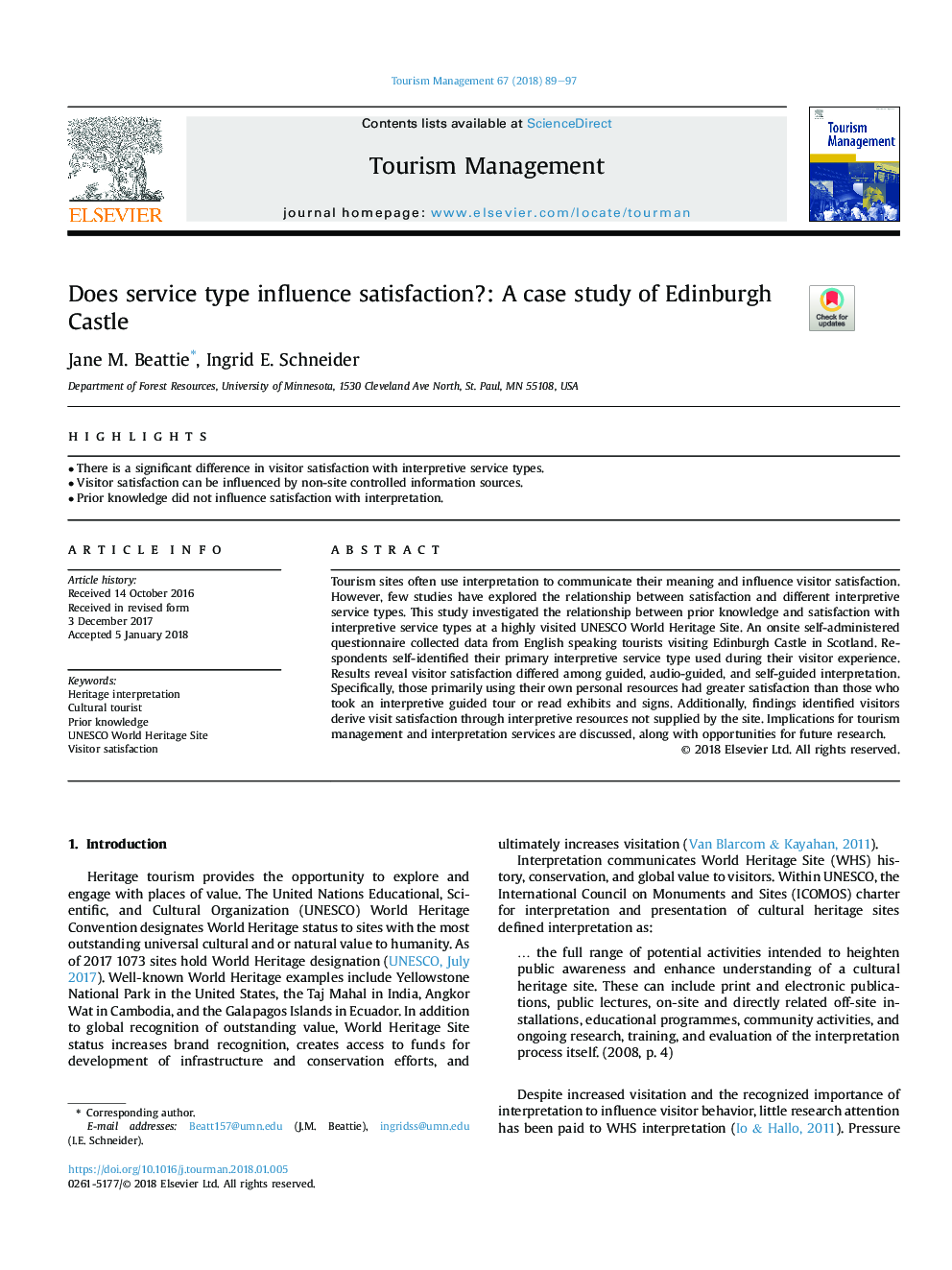| Article ID | Journal | Published Year | Pages | File Type |
|---|---|---|---|---|
| 7420928 | Tourism Management | 2018 | 9 Pages |
Abstract
Tourism sites often use interpretation to communicate their meaning and influence visitor satisfaction. However, few studies have explored the relationship between satisfaction and different interpretive service types. This study investigated the relationship between prior knowledge and satisfaction with interpretive service types at a highly visited UNESCO World Heritage Site. An onsite self-administered questionnaire collected data from English speaking tourists visiting Edinburgh Castle in Scotland. Respondents self-identified their primary interpretive service type used during their visitor experience. Results reveal visitor satisfaction differed among guided, audio-guided, and self-guided interpretation. Specifically, those primarily using their own personal resources had greater satisfaction than those who took an interpretive guided tour or read exhibits and signs. Additionally, findings identified visitors derive visit satisfaction through interpretive resources not supplied by the site. Implications for tourism management and interpretation services are discussed, along with opportunities for future research.
Related Topics
Social Sciences and Humanities
Business, Management and Accounting
Strategy and Management
Authors
Jane M. Beattie, Ingrid E. Schneider,
